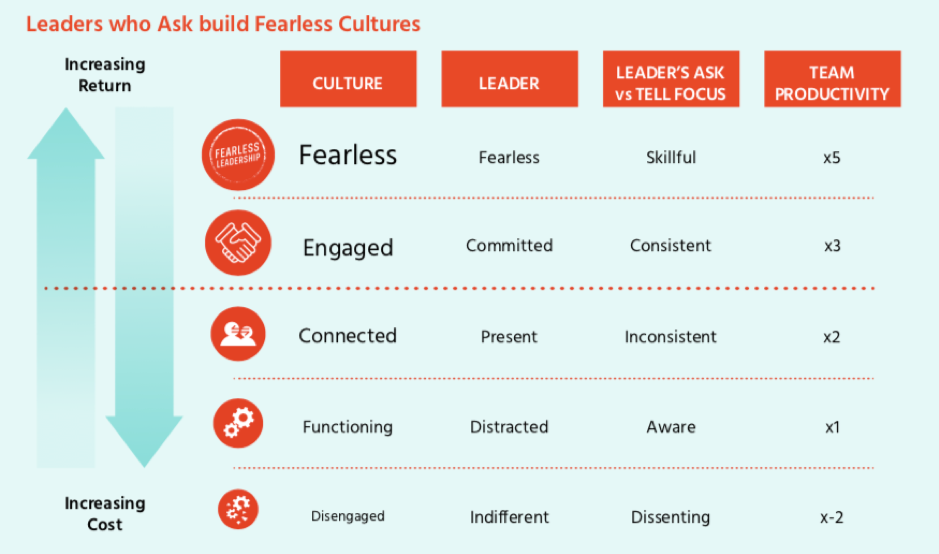Connect deeply. Build engagement. Transform results.
This program will equip leaders across the organisation to create a culture where people are engaging in meaningful ways with their managers and each other, and taking responsibility for the things that really matter.
Leaders will spend less time stuck wondering how to proceed, and more time having the conversations that matter. What needs to be done will get done faster.
Leaders won’t be scared to show up and deal with a tricky conversation. They will feel confident to navigate to a shared outcome. More and more leaders will engage in the right conversations, so the right work will get done.

Is your culture
- Led by leaders with excellent technical skill and gaps in their people leadership?
- Experiencing high absenteeism and/or turnover?
- Suffering from simmering problems that the leader is unskilled to surface and resolve?
- Missing KPIs and lacking in accountability?
- Almost where you want it, and needing greater energy and connection?
Are your leaders
- Operating in ‘expert’ mode and solving all the problems personally, rather than empowering the team?
- Lacking the ability or confidence to have crucial performance conversations?
- Struggling to engage the team or unleash discretionary effort?
- Missing opportunities to develop the people on the job?
- Fighting fires rather than building team culture?
- Trying unnecessarily to ‘control’ people and situations and so working harder than they need to?
- So operationally focused that strategic work is overlooked?
- Telling more and asking less?
Why ask?
Questions engage people, build accountability and create insight. Questions underpin a coaching approach. Adding coaching competencies and questioning techniques to your leadership tool kit will equip you to engage, develop and lead people.
The Results
Leaders Who Ask:
- Ask more. Tell less. Leaders resist the temptation to provide direction and display
- their expertise. They ask questions that lead to insight.
- Work without the answers. Leaders are okay not having all the answers themselves and encourage wisdom from the team. They are more comfortable with ambiguity and change.
- Have tricky conversations. Leaders are confident to raise issues simmering under the surface. They have the conversations that are necessary in ways that build (and not bruise) the relationship.
- Bridge the hybrid workplace. Are able to keep people connected and build culture regardless of where people are working.
- Run effective meetings. Leaders facilitate targeted and outcome focused conversations that leverage input from everyone present.
- Build engagement. People feel heard and invested in. They care about the team, the organisation and the results.
- Delegate. More work is done below leader level. Leaders are able to coach their people to build skills and take on new tasks and functions.
- Build psychologically safe teams. Leaders are more in-tune with how their people are feeling. People feel safe to speak out.
- Focus on what matters. Leaders hold themselves and others accountable for the behavior and the activity that matters to the team and the organisation.
- Boost productivity. When people feel connected, valued and clear on what is important, they direct energy into the priority work. Discretional effort is released. Continuous improvement happens when leaders take a coaching approach.
- Develop a fearless culture. Create a place where people want to come to work every day and make a difference.
Leaders Who Ask is ideally suited to support organisational cultural change programs, or to complement the removal for a traditional performance appraisal system.
This program is for leaders who are ready to lead fearlessly and engage fully by adding coaching skills and questioning techniques to complement and extend their leadership style. This leadership training can be successfully delivered face to face or via virtual training. Leaders Who Ask differs from a classic leader as coach or coaching training program because a greater focus is put on the way the leader show us (leader state), and less emphasis on the coaching model.

